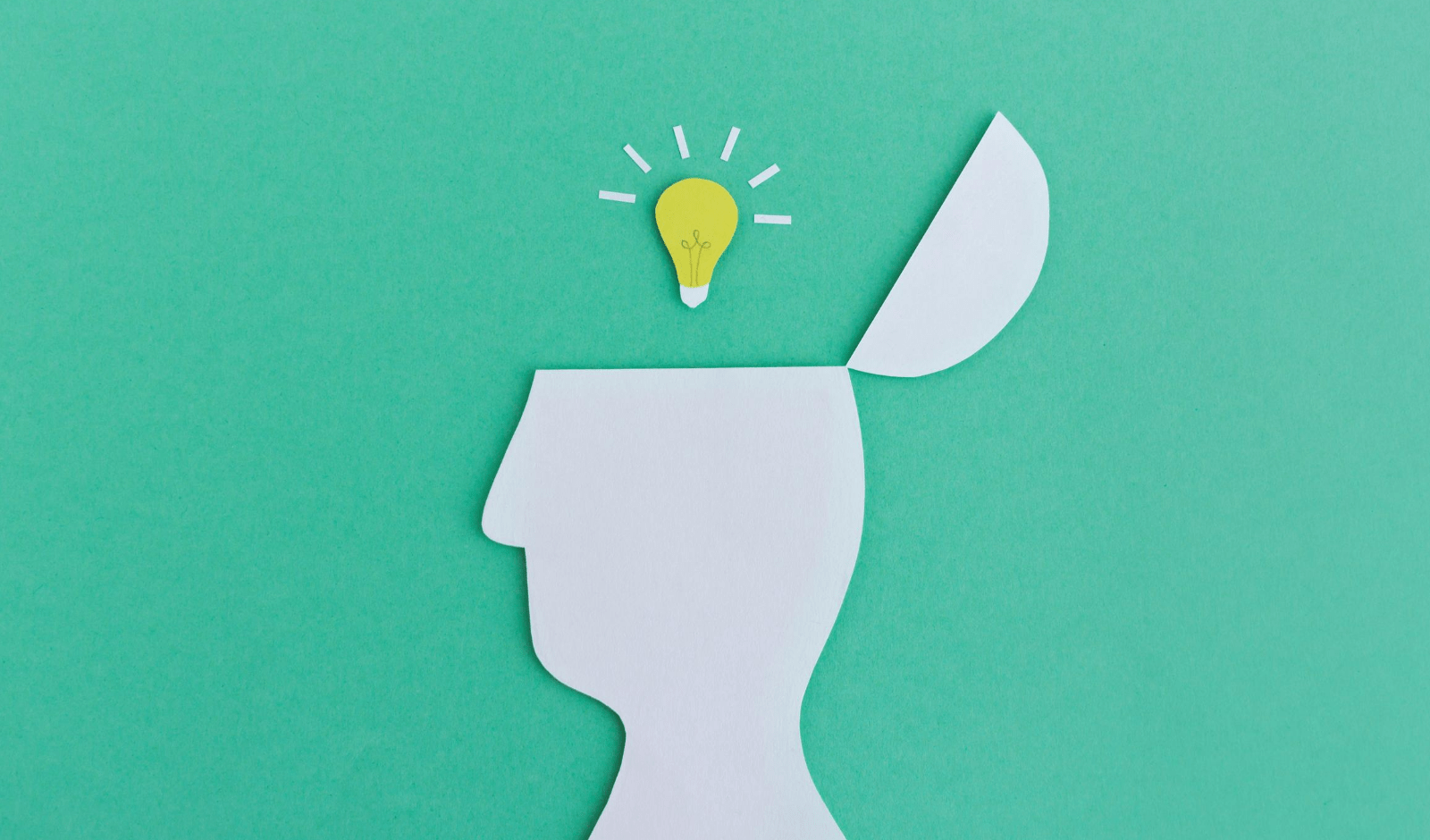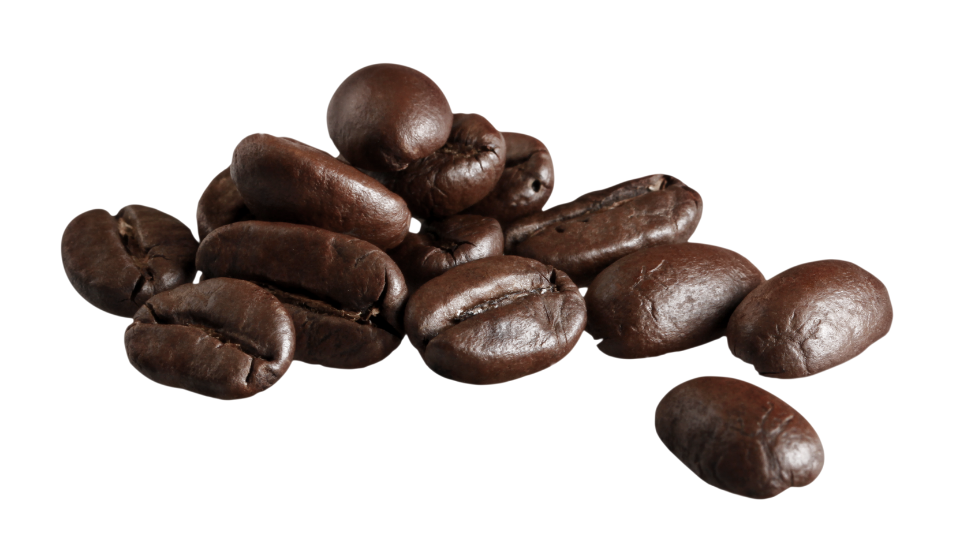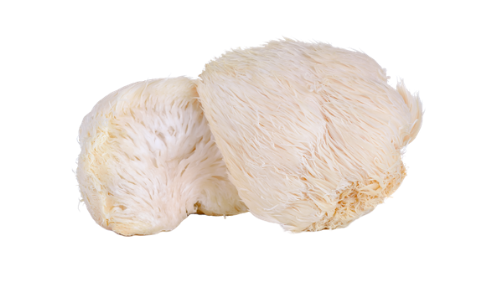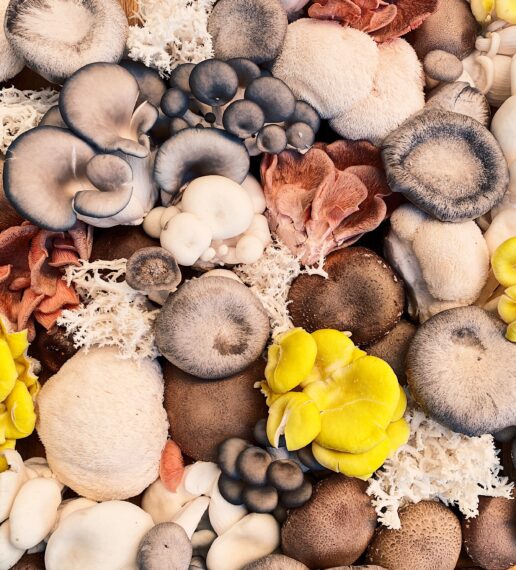Top 10 Natural Nootropics: Cognitive Enhancers That Might Work For You

You might not be familiar with the word “nootropics” but if you’ve ever taken fish oil supplements or enjoyed a caffeinated drink like coffee or matcha green tea, then you’ve had nootropics without even knowing it.
Nootropics are supplements, drugs, and other substances that can have a positive effect on brain function, especially when it comes to memory, focus, learning, and mental clarity.
Derived from the Greek words “nous” (mind) and “trepein” (to bend or turn), nootropics can indeed bend the mind into a better working machine.
However, it’s important to note that not all nootropics are created equal.
There are natural nootropics (also called herbal nootropics), which are comprised of natural compounds, and then there are synthetic nootropics (aka “smart drugs”), which are made from chemical compounds and can have a number of side effects.
Natural Nootropics VS. Synthetic Nootropics
In today’s non-stop world, it’s no wonder more people are on a quest to improve memory, reduce mental fatigue, and enhance overall brain performance. After all, cognitive function can be thrown off simply from not having enough sleep, not eating well, not enough physical activity, or just being exhausted from the stress of everyday life.
But wanting better mental performance is nothing new. For centuries, traditional Chinese medicine and ancient Ayurvedic medicine have been using natural nootropics from plants, herbs, fungi, and root extracts—think ginkgo biloba, ginseng, and brahmi, for example—as a safe and steady approach to enhance mental function. And those old traditions were right.
Clinical studies prove that these natural nootropics boost brain function while at the same time improving overall brain health.
On the other hand, synthetic smart drugs such as Piracetam, Adderall, Ritalin, Modafinil, and other man-made compounds have become more widely used over the last several decades.
While these pharmaceutical nootropics are touted for their positive effects on cognitive performance, they can have multiple side effects ranging from rapid heart rate and headaches to anxiety, insomnia, and withdrawal symptoms when taken off the drug.
Top Ten Natural Nootropics
To steer clear of chemicals, consider high-quality natural nootropics and read the label so you know exactly what you’re getting. As always, consult your doctor or trusted medical professional before starting any supplement or making any major changes to your diet.
Here’s a look at some of the best natural nootropics and how they impact brain power.

1. Caffeine
Naturally found in cocoa, coffee, and non-herbal teas, caffeine is the most highly consumed psychostimulant in the world. Because of its well-known ability to stimulate the brain, it’s most often used to increase energy, usually in the form of that morning cup of coffee. Studies show that caffeine blocks the receptors of the neurotransmitter adenosine, thus increasing excitability in the brain and making you feel less tired.
While caffeine can improve reaction time, clinical trials conclude it does not usually affect performance in learning and memory tasks.
2. Bacopa Monnieri
An extract from the brahmi plant, bacopa monnieri has long been used in traditional Indian medicine to enhance brain function. Now, research shows that it can improve memory, speed of attention, and overall mood. The active compounds in bacopa monnieri, called bacosides, have antioxidant properties that protect brain cells from oxidative stress caused by free radicals. A study published in 2017 found that bacopa significantly improved cognitive function in older adults with Alzheimer’s disease.
Bacopa is usually consumed as a nootropic supplement in the form of a liquid extract or powdered capsule.
3. L-theanine
If you enjoy a cup of green tea, then you’re reaping the benefits of L-theanine, a naturally occurring amino acid in tea that is known for its ability to induce mental clarity while having a non-drowsy relaxing effect at the same time. L-theanine increases levels of important neurotransmitters in the brain including dopamine, serotonin, and GABA, which give you a sense of happiness and well-being.
Studies show that L-theanine is even more effective when combined with caffeine, so these two nootropics are often combined as natural nootropic stacks. (More on that below.)
4. Omega-3 Fatty Acids
The many benefits of omega-3 fatty acids (DHA and EPA) are widely known these days, but you might not realize that they are nootropics. Naturally found in cold water fish, omega-3s are the essential fatty acids required for brain development.
They also increase blood flow to the brain and improve cognitive function ranging from enhanced attention to decreased anxiety. However, not everyone gets enough of these essential brain boosters from diet alone, so fish oil supplements (or micro-algae supplements for vegetarians and vegans) are an important source of these natural nootropics.
5. Rhodiola Rosea
Also known as Arctic root or golden root, rhodiola rosea is an adaptogenic herb that European cultures have used for centuries as a way to manage stress. Today, it’s most commonly taken as a supplement in pill form to improve mood and reduce mental fatigue.
While more research is needed, some clinical trials show that rhodiola rosea has an anti-fatigue effect that increases mental performance and reduces feelings of burnout, especially for those in high-stress situations.
6. Curcumin
You might not know it by name, but curcumin is the bright yellowish-orange substance that gives turmeric its eye-catching color. It’s also the anti-inflammatory molecule that has made turmeric a popular “miracle spice” found in everything from curry dishes to golden milk lattes.
Research shows that curcumin can have an antidepressant effect on the brain by increasing levels of the feel-good neurotransmitters dopamine and serotonin. Other tests have shown that curcumin can protect against certain cancers, heart disease, and arthritis. Because curcumin is poorly absorbed in the body, it’s recommended to take it with black pepper to increase efficacy.

7. Lion’s Mane Mushroom
It’s hardly as popular as white button mushrooms or portobellos, but lion’s mane mushroom is getting much more attention nowadays as an effective natural nootropic. More than just an exotic mushroom, this brain-boosting fungus has been a go-to ingredient in Chinese medicine for years.
Lion’s Mane contains active ingredients called hericenones and erinacines, which induce nerve growth factor (NGF), a protein necessary for the growth, maintenance, and survival of neurons.
Although more human studies are needed, animal tests prove lion’s mane can help reduce memory loss and relieve symptoms of depression.
8. Ginseng
It’s usually just called ginseng, but there are two different types of this plant root: Panax ginseng (Asian ginseng or Korean ginseng ) and American ginseng (Panax quinquefolius). While both have been used for centuries, studies show that each variety has different benefits and potential risks.
American ginseng can reduce blood sugar levels, reduce mental fatigue, and significantly improve cognitive function on sustained tasks such as arithmetic, but more research is needed to better compare it with Asian ginseng.
9. Huperzine A
Extracted from the Chinese club moss plant, Huperzine A is commonly used in Chinese medicine to improve memory and increase mental energy and alertness. In more recent years, it’s been used in clinical trials to treat those with dementia, Alzheimer’s disease, and other conditions associated with age-related memory loss.
While some studies suggest that Huperzine A can improve cognitive function and overall symptoms in Alzheimer’s patients, more research is needed to determine potential benefits and long-term risks.
10. Creatine
Most often associated with bodybuilders and athletes, creatine is an amino acid that helps build protein and increase muscle growth. But some research suggests it can also offer brain-boosting power, improving short-term memory and reasoning capabilities of healthy people.
While creatine is naturally made in the body, it also comes from consuming meat or fish. As such, vegans and vegetarians will have to forgo natural creatine for a synthetic version of this nootropic supplement.

Natural Nootropic Stacks
The old saying “there’s strength in numbers” can be applied to nootropic stacks, which are designed to further enhance the overall effects of natural nootropics by combining two or more. Here’s a quick look at the most common combinations.
L-Theanine + Caffeine Stack
Research provides reliable evidence that L-theanine and caffeine have clear beneficial effects on sustained attention, memory, and mental focus. Caffeine by itself can cause headaches and jitteriness, but when combined with L-theanine it creates a calm yet alert effect.
Bacopa Monnieri + Lion’s Mane + Ginkgo Biloba
While it’s been reported that this natural nootropic stack does not offer instant results, the synergy created by mixing bacopa monnieri, lion’s mane, and ginkgo biloba can result in enhanced focus, memory, and learning, plus a better mood overall.
Nootropic Safety
When it comes to taking nootropics, proceed with caution.
As a first step, it’s important to talk to your doctor and take stock of your diet and lifestyle to reduce any factors that might be negatively impacting your brain performance. Is your diet poor? Are you getting enough exercise and sleep? Are you over-stressed?
Once you’ve done a thorough assessment of your own status and personal health goals, natural nootropics can open up a world of limitless possibilities.

